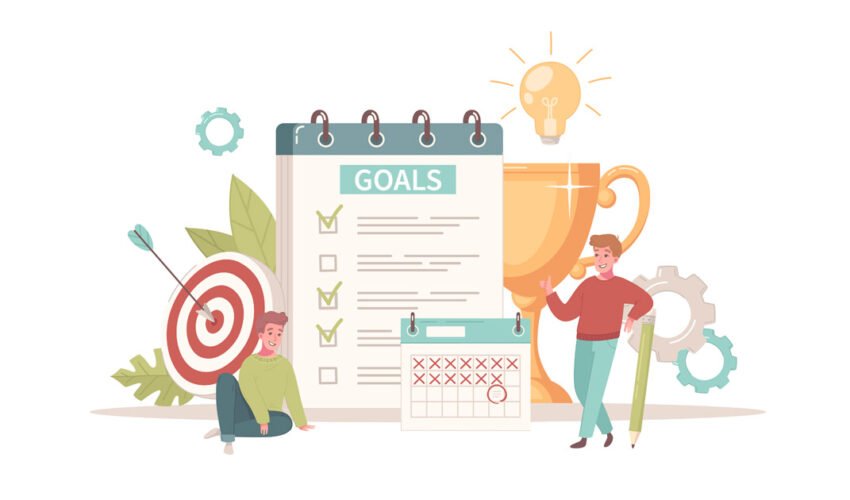Self-improvement is a process of understanding and developing oneself in order to achieve one’s full potential. It involves setting goals, gaining knowledge, and taking action in order to make positive changes in one’s life.

Self-improvement can involve a wide range of activities, including physical, emotional, intellectual, and spiritual growth. Some common goals in self-improvement include improving physical health, developing better relationships, increasing self-awareness and self-esteem, and achieving financial success.
Self-improvement is a lifelong journey, and it requires effort and commitment to make positive changes and reach one’s full potential. It can be challenging at times, but the rewards of personal growth and well-being are well worth the effort.
You must be patient in order to maintain self-improvement.
Patience is an important quality to cultivate in the process of self-improvement, as progress is often slow and incremental. It’s easy to become frustrated or discouraged when you don’t see immediate results, but it’s important to remember that self-improvement is a journey, not a destination.
By cultivating patience, you can stay focused and motivated, and be more resilient when faced with challenges or setbacks. Patience allows you to take the time to make the changes you need to make, rather than expecting overnight success.
Here are a few tips for cultivating patience in the process of self-improvement:
- Set realistic goals: Make sure to set goals that are achievable, rather than expecting too much too soon. This can help you avoid frustration and disappointment.
- Focus on the present moment: Instead of worrying about the future or dwelling on the past, try to focus on the present moment and what you can do right now to move forward.
- Practice gratitude: Focusing on what you have rather than what you lack can help you feel more content and patient.
- Take breaks: It’s important to take breaks and give yourself time to rest and recharge. This can help you stay fresh and motivated.
- Seek support: Surround yourself with people who can offer encouragement and support. Having a strong support system can help you stay patient and motivated on your self-improvement journey.
Steps to self-improvement
Identify areas for improvement: The first step in the self-improvement process is to identify specific areas in which you want to make changes. This might include things like improving your physical health, developing better relationships, increasing your knowledge and skills, or achieving financial success.
Set goals: Once you have identified areas for improvement, the next step is to set specific, achievable goals. Make sure to break your goals down into smaller, more manageable steps to make them more achievable.
Create a plan: Next, create a plan to help you reach your goals. This might include things like setting aside time each day to work on your goals, finding resources or mentors to help you, or enlisting the support of friends or family members.

Take action: The most important step in the self-improvement process is to actually take action and make the changes you have identified as necessary. This requires discipline and commitment, but it is essential to achieving your goals.
Monitor your progress: As you work towards your goals, it’s important to track your progress and make adjustments as needed. This can help you stay motivated and on track, and it can also help you identify any roadblocks or challenges that you need to overcome.
Seek support: Finally, don’t be afraid to seek support from others. A strong support system can provide encouragement, accountability, and resources to help you on your self-improvement journey. This might include friends, family members, mentors, or online communities.
Why is discipline important for Self Improvement?
Discipline is important in self-improvement because it allows you to consistently take the actions necessary to reach your goals. Without discipline, it can be difficult to make progress in self-improvement, as it requires a commitment to follow through with your plans and make the necessary changes.

Discipline helps you to stay focused and motivated, even when faced with challenges or setbacks. It allows you to stay on track and make consistent progress toward your goals, rather than becoming sidetracked or giving up.
In addition, discipline helps to build self-control and self-regulation, which are important skills in self-improvement. By practicing discipline in one area of your life, you can develop the ability to control your thoughts, emotions, and behaviors, and make positive choices that support your goals.
Results of self-improvement
Improving physical health: This might involve setting goals such as exercising regularly, eating a healthy diet, or quitting smoking. Action steps might include joining a gym, seeking the guidance of a nutritionist or personal trainer, or joining a support group for quitting smoking.
Developing better relationships: This might involve setting goals such as improving communication skills, building stronger connections with others, or resolving conflicts. Action steps might include attending a communication workshop, reaching out to friends and family members for support, or seeking the guidance of a therapist or coach.
Increasing self-awareness and self-esteem: This might involve setting goals such as improving self-confidence, learning more about one’s values and beliefs, or setting healthy boundaries. Action steps might include practicing self-care, seeking out new experiences and challenges, or learning more about one’s personal strengths and weaknesses.
Achieving financial success: This might involve setting goals such as saving for retirement, paying off debt, or building wealth. Action steps might include creating a budget, seeking the guidance of a financial planner, or investing in education and training.
There are many different areas in which one can focus on self-improvement, and the specific goals and actions will depend on the individual’s needs and interests.










